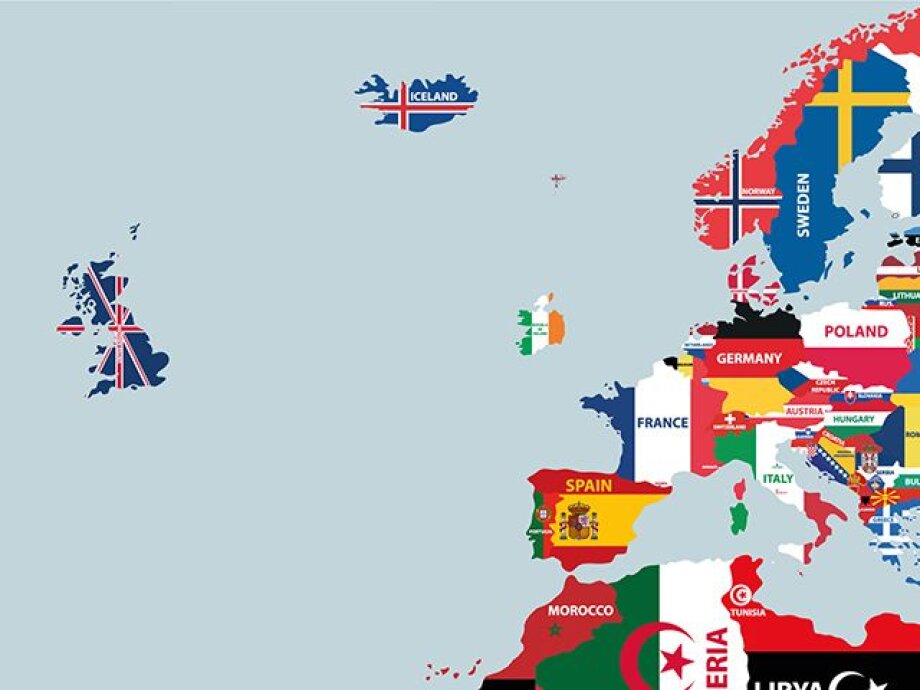WBJ: What Brexit means for the Polish job market?
Michael Dembinski: First of all, let’s go back to when Poland joined the EU in 2004. The crucial element in all of this was the decision of Tony Blair’s government to allow citizens of the new EU member states unlimited access to the UK labor market. At the time, Poland had the highest unemployment rate in the EU. It was 18.9 percent according to Eurostat [the EU statistics agency]. Today Poland’s unemployment rate according to Eurostat is the third lowest in the EU [Czechia (2%), Germany and the Netherlands (3.2%), Poland (3.3%)]. There is a difference between the way Eurostat and the Polish government measure unemployment. No other country in history has seen unemployment fall at such a rate as Poland. Despite a blip during the time of the economic crisis [around late 2009], Poland didn’t experience a recession.
Nevertheless, the unemployment rate went back up again a little bit. But since 2014-2015, the unemployment rate has just been going down. And this is the biggest problem that our [BPCC’s] members in Poland face right now – recruitment and retention of staff. So in terms of what Brexit will mean, there are many employers in Poland who hope that there will be a wave of returnees coming back to Poland from the UK. But that does not seem to be borne out by the official UK migration statistics. On the one hand, Poles have been rather slow to apply for settled status, on the other hand, we are not really seeing, even anecdotally, any talk of large numbers of Poles returning to the UK. It’s rather individuals. And certainly, if a Pole or a Polish couple has children in UK schools and has properties in the UK, they are unlikely to be thinking about leaving the UK.
 Considering what you have just said and according to Poland’s central stats office [GUS], more and more Poles are leaving the UK. However, many of them aren’t coming back home. They are moving to countries including Germany and the Netherlands. Is Poland going to benefit at all?
Considering what you have just said and according to Poland’s central stats office [GUS], more and more Poles are leaving the UK. However, many of them aren’t coming back home. They are moving to countries including Germany and the Netherlands. Is Poland going to benefit at all?
I think it has more to do with the export of jobs. We are not talking about the export of head offices to Warsaw. But we are talking about increasingly sophisticated services, [business] processes such as quantitative analysis. We’ve got three banks – Credit Suisse, Standard Chartered and JP Morgan Chase – looking for hundreds of PhDs in maths in Warsaw to do really high-end stuff which wasn’t really happening in Poland 10-15 years ago when the whole movement toward outsourcing began.
Similar thing in manufacturing. We are seeing more and more companies, SMEs – quite a novelty – moving their production to Poland because the supply chains in automated and aerospace are becoming ever tighter. The clients of many companies from the UK are in Poland … Rzeszów Aviation Valley. The clients are saying to the suppliers “bring your factories closer to us”. They aren’t necessarily big factories – some of them employ 50-70 people. But this is something quite new. This has only been really happening since about 2015-2016. It might have happened anyway. It’s not necessarily a direct cause of Brexit. Supply chain optimization has been going on for a while. But this is all adding up to a situation whereby it is hard for employers to find the right people with the right skills and to hang on to them once they have got them.
Is Brexit in any way good for Poland? The UK is an important trading partner of Poland?
When you are looking at bilateral trade, number one is clearly Germany. Number two is China simply because of the tidal wave of stuff that comes over from China into Poland. Hardly anything goes back the other way … Poland exports twice as much to the UK as the UK exports to Poland. So when we are looking at the value of bilateral trade, it’s not actually that great.France and Italy do better. But the UK was for a while Poland’s second-largest export market. It’s now fallen into third place behind Czechia.
And looking at trends from 2019, I think it won’t be long until it falls to fourth place behind France. Poland imports a lot more from France than it does from the UK. So the UK will not be as important a trade partner as it has been to Poland. But a general observation about Polish exporters is that they are a determined bunch. They aren’t a bunch of softies who give up easily. We saw this after 2014 when the Russians imposed sanctions on Polish food products. And very quickly Serbia became the largest exporter of apples to Russia. Most of that came from Poland. Or Belarus became the largest exporter of fish without even having a coastline. So again coming from Poland. Polish exporters are very resilient. They will find new and creative ways of getting into a market if the market is lucrative for them. And the UK certainly is. I think their determination alone will ensure that there isn’t any catastrophe in terms of Poland’s balance of trade.
So Brexit only affects the UK's economy?
Nine percent of the UK’s value-added GDP comes from the manufacturing industry. This means that the UK is condemned to a trade deficit in goods. It simply doesn’t manufacture enough. It has to buy them in. The UK has a massive trade deficit in goods … Now the problem is that many of the UK’s largest financial institutions had already Brexit-proofed themselves by the end of 2018. We had three missed deadlines for Brexit last year. And each of them entailed a risk of a no-deal Brexit, without any passporting rights. [Passporting rights refer to exercising the right for a company registered in the European Economic Area to do business in any other EEA country without having to request further authorization in that country.]
So the major UK financial institutions that are doing any business in continental Europe, have moved their European operations to jurisdiction within the EU. So looking at our [BPCC] members, for example, HSBC now reports to Paris from its Poland headquarters in Warsaw, rather than to London. Lloyd’s of London – the oldest insurer – here in Poland is now a subsidiary of Lloyd’s Brussels. So any insurance policy that is written here in Poland is treated as an export of Belgium financial services. Not of the UK financial services. Aviva – one of Poland’s biggest insurers and one of Poland’s biggest active fund managers – now reports to the French regulator in Paris. And Prudential, again big in life insurance, they have moved [all their non-British EU business] to Dublin.
So all of this happened right at the tail end of 2018. This is not visible in trade statistics in services for 2019. We don’t know what 2019 [stats] would look like. But my guess is that there will be a severe diminution in the UK’s export financial services to the EU as a result of those companies Brexit-proofing themselves. The UK’s trade deficit is destined to grow. The UK’s talking brave about striking up new trade deals all over the world. It will be doing that from a position of weakness. You can’t negotiate with huge economies like the US, China, India, as a country of 67 million. It is so much easier to do it as part of the world’s richest trading bloc.
Will Brexit affect any Polish industries?
Two which are at the greatest risk are automotive and food. Both of those depend on just-in-time logistics. We already had signals last year of Polish food exporters to the UK who were having difficulties getting perishable goods insured in transit to the UK because of the fear of a no-deal departure. Companies that have long-term contracts with major UK food retailers found that they can’t get insurance for the food that they were required to deliver. We still don’t know what the situation at Dover and Calais is going to look like on January 1, 2021 [the transition period ends on December 31]. It’s a very similar situation for the automotive [industry]. The entire European automotive industry is predicated by just-in-time delivery. If you’re a supplier, you have to get your goods to Gate B between 9:15 and 9:30 on Tuesday. It can’t be any earlier, it can’t be any later. That works fine if there is no friction at Dover. We have already seen significant talk of disinvestment from the UK from manufacturers like Nissan, Honda, BMW. Already Jaguar Land Rover is building the new I-PACE in Slovakia. So there is a big risk to the entire UK automotive sector.
From a point of view of Polish suppliers and supply chains, it may simply be that they are no longer sending their parts to factories in the UK but they are sending it to Slovakia, the Netherlands or France. That we don’t know. But as I say those are the two sectors in Poland which are most affected … I think the key thing really for Poland exporters is who your competitors are. If you’re a Polish exporter and your main competitor is from the Far East, then you will have difficulties because you’ll all of a sudden lose that frictionfree access to the UK. You’ll start having to do things like get an EORI number [European Union registration and identification number for businesses which undertake the import or export of goods into or out of the EU] and country of origin certification, sort out your VAT, all of this extra paperwork which your competitor from the Far East has to do anyway.
On the other hand, if your competitor is from a higher cost economy in Western Europe, then Polish exports will have a natural advantage. They will be able to sell products more cheaply. And it then becomes an issue of brand and perception of quality. And I think that over the 15 or so years Poland has been in the EU, Poland’s exports to the UK have tripled and Polish exports generally have a good reputation among UK consumers and UK corporate buyers for the right quality at an attractive price. Polish exporters should not give up on the UK market as long as they are not in the area of perishables or just-in-time, and you still have that determination and will to succeed in the UK market, which is after all still a wealthy market.
The UK is a net contributor to the EU budget and Poland is a net recipient. How is that going to look after Brexit?
People have been talking about that for quite some time here in Poland. It will be worse. No one is expecting the same level of generosity from the EU in the next financial perspective. Brexit is one reason. But a bigger reason really is the restructuring of EU funds. No longer looking at the east of the bloc but now the south where the real problems are. Poland doesn’t have a problem with unemployment today. Greece, Spain and Italy still do. The feeling is that one way or another, with or without Brexit, those funds would be pointed back down south.
There have been many attacks against Eastern Europeans in the UK including Poles. Will Poles be welcome in post-Brexit Britain?
It depends where you live. I was born in west London. Already in the 1960s, one-third of my class at primary school were either migrants or children of migrants. For Londoners, migration, people with different skin color or different accents is nothing new at all. As a result, London voted Remain. Similar stories for cities like Liverpool, Bristol, have long traditions of immigration. The places that voted Leave were small-town England and Wales. A little example. After Poland joined the EU, Tony Blair opened the labor market to Poles. We as a chamber of commerce held many recruitment fairs around Poland. And we had many UK companies – big employers looking for thousands of people from Poland to work in various industries. They would come here and recruit en masse. We did these fairs in Lublin, Łódź, Białystok, Rzeszów, Kraków, all over the place. Until Poland noticed that they were losing people at too fast a rate. We were doing this for a couple of years …
All of a sudden, a town or a village of over a thousand people, got 100 Poles turning up. Many of these were young men, in their mid-20s. And Friday nights and Saturday nights in the pubs, there’d be friction. You wouldn’t get that necessarily in cities but in places that had never seen immigrants before. This was something completely new. If you look at the results of the referendum, you’ll see that the biggest Leave-voting areas were those that saw the fastest rise in EU migration after 2004. Not necessarily from London where already 50 percent of its population is born abroad or cities like Leicester which is the first city that has a non-white majority. It’s places like … Fleetwood, Grimsby, Boston in Lincolnshire, where the number of people in the 2011 census that were born outside the UK grew from 0.2 percent to 6 percent. That’s where they were screaming “take back control”. And that’s where you get the biggest growth in xenophobic attacks.
Is Brexit a cause for celebration or gloom for Poland?
Gloom. We talked about the economy but the bigger picture is one about geopolitics. The EU has lost a very significant member state, a great ally of Poland, the country that together with Poland could have formed a counter-balance to the Berlin-Paris axis. France and Germany will become much louder voices in terms of where the EU is going next. The UK had the potential to gather Scandinavian countries, the Netherlands, Poland, the Baltics into some kind of group that could say to the Germans and the French that no, we don’t like this direction … For Poland, it’s a bad day.












 Considering what you have just said and according to Poland’s central stats office [GUS], more and more Poles are leaving the UK. However, many of them aren’t coming back home. They are moving to countries including Germany and the Netherlands. Is Poland going to benefit at all?
Considering what you have just said and according to Poland’s central stats office [GUS], more and more Poles are leaving the UK. However, many of them aren’t coming back home. They are moving to countries including Germany and the Netherlands. Is Poland going to benefit at all?





